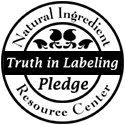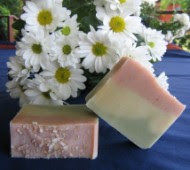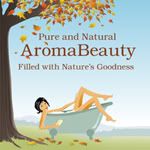.jpg)
With so many soaps available today, it can be very confusing trying to choose the right soap for your needs.
How do you choose?
- If you don’t mind using chemicals and don’t have a problem with dry or itchy skin, then your choice is easy, any supermarket bought commercial soap will suit your needs. Just remember that Commercial soaps are usually made with animal tallow (fat) and contain a variety of artificial chemicals, have a look at the ingredients listed on the pack of your current soap, you'll be surprised just how many chemicals are in there. Commercial soap can often irritate your skin and cause dryness and itchiness and allergic reactions because of the addition of chemicals, preservatives and synthetic additives, as well as the lack of natural glycerine, which is taken out and sold separately.
- Glycerine or melt and pour soaps. If you’re looking for true handmade soap, then look for soap that says it's made from scratch. Some so-called handmade soaps are actually “melt and pour” soap, which means that it is a pre-made soap base bought from a craft store or soap making supplier and a lot of these melt and pour soap bars are not much better than shop bought industrial soap. There is a huge difference between good quality handmade soap and industrial standard handcrafted soaps. Melt and pour bases are quick and easy to use and can be made into beautiful looking soaps, all that needs to done with this base is to place it into a pot and heat until it's melted. Once it's melted other ingredients can be added by the purchaser/handcrafter if they want to, before pouring and allowing to set, these bars are then called handmade. A bit like buying a packet cake mix from the supermarket and then making it yourself, it will still contain chemicals but will allow you to add extra ingredients if you’d like. The handcrafter may then say that these soaps are natural because they haven't added any extra chemicals to them, but fail to mention the actual ingredients contained in the pre-purchased melt and pour base. So if you want natural or organic soap always check the ingredients contained in the soap bar and look for the method used in making them, so you know exactly what you are buying.
- Good quality handmade soap is much gentler for your skin because it doesn’t contain that long list of chemicals that shop bought soaps contain and because it retains its naturally occurring glycerine. Glycerine is a gentle humectant that is wonderful for moisturising your skin and an important factor in the difference between handmade and industrially made commercial soaps. Are you wondering why supermarket bought bars don’t contain that vital ingredient glycerine?
Because the glycerine that naturally occurs in the soap making process is taken out and sold as a separate by-product to be used as a luxury ingredient in other products such as moisturiser, lotions and other skin care products (they make extra money that way).
If you decided you’d prefer the gentler handmade soap, you have a few different options.
1. The least expensive handmade soap will contain only the very basic oils. The main component of these soaps is usually palm oil and you’d normally find it listed 1st or 2nd on the ingredient listing on the soap label.
Palm oil is an inexpensive saturated vegetable oil, extracted from the fruit pulp of the Palm tree. Soaps made with high amounts of Palm oil produces a soap that is low in that all important glycerine, so it’s not as moisturising or as beneficial for your skin. Palm oil doesn’t have any specific good quality or advantage for your skin, but can be an inexpensive addition for adding hardness to soap bars.
A downside of Palm oil is that some countries are converting large expanses of land into palm plantations for oil using unscrupulous deforestation methods which is causing extensive pollution and damage to our environment. Because vast areas of habitat are being cleared for Palm Oil plantations, Orangutans are fighting for their survival, so protecting this land is critical. This type of soap also typically contains synthetic ingredients such as artificial colours and chemical made fragrances as they are a cheaper alternative to pure essential oils. This type of soap usually sells between approx. $1.00 and $4.50 a bar, dependent on weight.
2. A better option for your skin health is handmade soap containing olive oil as its main ingredient. Olive oil is so much gentler for your skin; it’s packed with vitamins and minerals and is high in essential fatty acids. It is believed to have healing properties and is wonderful for moisturising, softening and soothing your skin. Soap makers who specifically aim for skin benefit value choose olive oil as their main ingredient as it has no equal for its exceptional qualities.
Look for pure handmade soap that replaces the artificial colours and fragrances with the more expensive but much more beneficial for your health, pure essential oils, making them an All Natural Soap which is even better for your skin. You can expect to pay approx. $4.00 to $6.50 per bar depending on the weight and whether synthetic fragrance and colors or essential oils have been used.
3. Now if you’d really like to pamper yourself with the very best handmade soap, look for luxury all natural soap bars. These bars are similar to the soap above but they have added extra super-fatting oils such as Cocoa, shea, avocado or mango butters, apricot kernel, sweet almond, hempseed or avocado oils, all beneficial to your skin and extra nourishing. They’ll also contain other beneficial organic ingredients such as goat’s milk, green or herbal teas, aloe vera or coconut cream and pure essential oils. You can expect to pay between approx. $6.00 to $10.50 per bar dependant on weight for these luxurious soap bars.
I hope this has helped you to decide on the right soap for your needs. If you’re looking for luxury all natural soap bars then Pure and Natural AromaBeauty can help you find the perfect soap just for you.

.jpg)
.jpg)
.jpg)








No comments:
Post a Comment